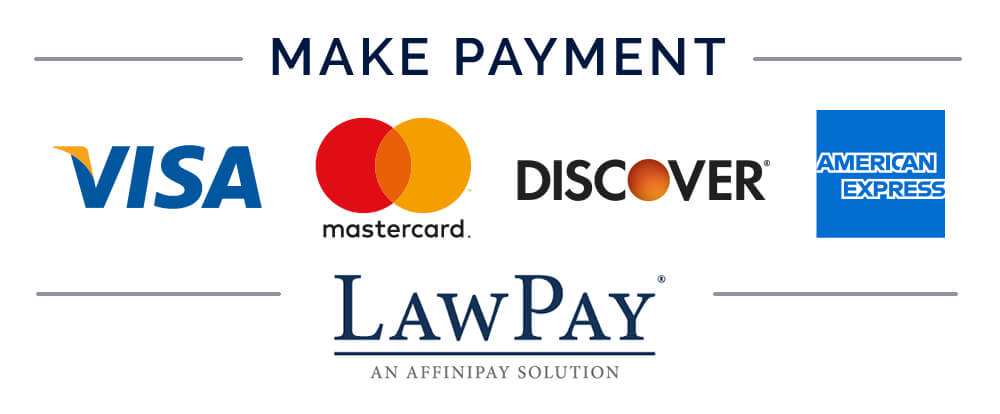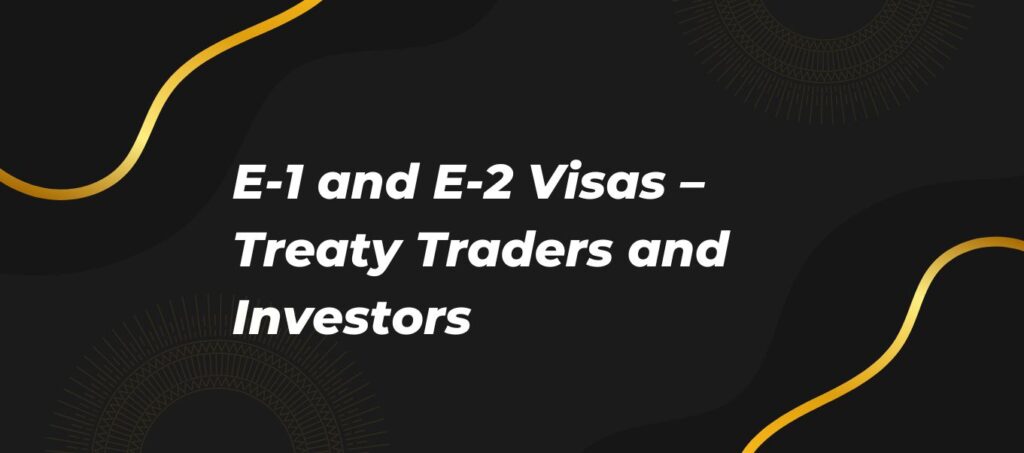If you’re a business owner, investor, or international entrepreneur from a treaty country and you want to trade with or invest in the United States, the E-1 or E-2 visa may be your best option. These two visas are designed to help promote economic partnerships between the U.S. and select countries by allowing individuals to conduct business or make substantial investments on American soil.
Whether you want to launch a new company, open a franchise, or expand your family business, these visas give you the flexibility to live and work in the U.S. while actively managing your operations.
What Are the E-1 and E-2 Visas?
The E-1 and E-2 visas are part of a special treaty-based category for nationals of countries that have a qualifying trade or investment agreement with the United States.
◆ E-1 is for treaty traders conducting substantial trade with the U.S.
◆ E-2 is for treaty investors putting capital into a real U.S. business
Both are non-immigrant visas, but they can be renewed indefinitely as long as your activity continues.
What Are the E-1 and E-2 Visas?
The E-1 and E-2 visas are part of a special treaty-based category for nationals of countries that have a qualifying trade or investment agreement with the United States.
| E-1 Visa | E-2 Visa |
|---|---|
| E-1 is for treaty traders conducting substantial trade with the U.S. | E-2 is for treaty investors putting capital into a real U.S. business |
Both are non-immigrant visas, but they can be renewed indefinitely as long as your activity continues.
E1-Visa vs. E-2 Visa Qualification
The E-1 visa is for individuals and employees of businesses involved in regular trade between the U.S. and their home country. The E-2 visa is ideal for people investing in or managing a business in the U.S.
| Qualifications for E-1 Visa | Qualifications for E-2 Visa |
|---|---|
| Must be a citizen of a treaty country | Must be a citizen of a treaty country |
| At least 50% of trade must be between the U.S. and your country | Must invest a substantial amount of personal capital |
| The trade must be substantial and ongoing | Business must be real, operating, and not marginal |
| The company must be major |
| E-1 Visa | E-2 Visa |
|---|---|
| Initial stay of 2–5 years depending on treaty and consulate | Initial stay of 2–5 years depending on treaty and consulate |
| Eligible for unlimited 2-year extensions while trade continues | Eligible for unlimited 2-year extensions while investment remains active |
| No maximum time limit as long as all conditions are met | No maximum time limit as long as all conditions are met |
| Allows travel in and out of the U.S. during visa validity | Allows travel in and out of the U.S. during visa validity |
| Spouse and children can apply for dependent visas | Spouse and children can apply for dependent visas |
| Spouse may apply for U.S. work authorization | Spouse may apply for U.S. work authorization |
E-1 vs. E-2: What’s the Difference?
Here’s a simple breakdown of the two visa types:
| E-1 Visa | E-2 Visa |
|---|---|
| Based on substantial international trade | Based on investment in a U.S. business |
| Requires ongoing trade between the U.S. and treaty country | Requires active and at-risk investment in a real business |
| Trade includes goods, services, tech, transportation, etc. | No specific industry required — just a real, operating business |
| No minimum dollar amount, but trade must be regular and significant | No fixed minimum, but investment must be substantial and proportional |
| Must demonstrate trade is essential to business | Must show business has potential for growth and not marginal |
What Is a Substantial Investment?
There’s no set minimum, but your investment should be large enough to ensure the business can succeed.
<td style=”padding: 14px 20px; border: 1px solid #ccc
| E-1 Visa | E-2 Visa |
|---|---|
| No investment is required. The focus is on international trade volume and frequency. | Requires a substantial investment of personal funds in a real, active U.S. business. |
| Must prove that at least 50% of trade is between the U.S. and the treaty country. | No minimum dollar amount, but investment must be enough to run and grow the business. |
| Does not involve capital risk — eligibility is based on trade activity. | Investment must be “at risk,” showing your financial commitment to the business. |
| Used by trading companies; capital infusion is not a requirement. | Used by entrepreneurs, investors, and franchise owners building businesses in the U.S. |
Application Process
The steps to apply for an E-1 or E-2 visa include:
Getting an E-1 or E-2 visa isn’t just about filling out a form — it’s about proving that your business is real, your intentions are serious, and your plans are solid. Here’s what to expect:
Check your eligibility
Make sure you’re a citizen of a treaty country and that your business activity qualifies — either through substantial trade (E-1) or a significant investment in a real, active business (E-2).
Get your documents in order
This is the most important (and often most time-consuming) part. You’ll need to gather and organize strong evidence, including:
-A clear business plan with projections
-Proof of ownership or your capital investment
-Trade contracts or invoices (for E-1)
-Financial statements and payroll records
-Any licenses, leases, or corporate documents
Fill out your online application
You’ll complete Form DS-160, the standard nonimmigrant visa application. For E visas, your company will also need to fill out Form DS-156E, which details your business background.
Schedule a visa interview at your nearest U.S. embassy or consulate
Once your forms are submitted, you’ll book your consular interview. This is your chance to present your case, walk through your documents, and explain your business and goals.
Attend your interview and bring your evidence
Be prepared. Dress professionally, know your numbers, and bring everything in a well-organized folder. Consular officers want to see that your business is legitimate and that you’ll play a key role in it.
If approved, your visa is issued, and you can enter the U.S. to begin operations.
Benefits of the E-1 and E-2 Visas
These visas are especially attractive for entrepreneurs and international business owners.
| Benefits of the E-1 and E-2 Visas |
|---|
| Fast processing compared to other visa types |
| No annual cap or lottery system to compete with |
| Unlimited renewals in 2-year increments if qualifications are maintained |
| Freedom to travel in and out of the U.S. while visa is valid |
| Spouse is eligible to apply for U.S. work authorization |
| Children under 21 can live in the U.S. and attend school |
| Supports long-term business operations or expansion in the U.S. |
Challenges and Limitations
Despite the flexibility, there are a few downsides to keep in mind.
While the E-1 and E-2 visas offer incredible opportunities for entrepreneurs and international traders, there are a few key challenges to be aware of:
Only for citizens of treaty countries
If your country doesn’t have a treaty with the U.S., you’re not eligible — no matter how solid your investment or trade activity is.
No direct path to a green card
These are temporary visas. They don’t automatically lead to permanent residency, although some applicants later adjust status through other options.
You must be actively involved
You can’t be a silent partner. You must actively direct the business (E-2) or be central to the trade operations (E-1).
Business must remain active and viable
If your trade slows down or the business underperforms, your visa could be at risk. It’s tied to performance.
Documentation must be detailed and convincing
Embassies and consulates will carefully review your financials, business plans, and proof of trade or investment. Weak or missing documents can lead to denial.
Dependent children have age limits
Children can only stay under your visa until they turn 21. After that, they’ll need to qualify for their own visa.
Can You Get a Green Card?
The E-1 and E-2 visas don’t allow dual intent, so they don’t directly lead to permanent residency. However, many E visa holders later apply for a green card through other options.
EB-5 Immigrant Investor Program
EB-1C for multinational managers
Family- or marriage-based green cards
Change status to H-1B, L-1, or another dual-intent visa
Real Success Story: Anna from the UK

Anna, a fashion designer from London, invested $120,000 into launching a boutique in Los Angeles. She developed a business plan, hired a team, and signed a lease in a trendy neighborhood. With a strong E-2 application and legal guidance, she secured her visa and now successfully runs her brand while her spouse works legally under an E-2 dependent visa.
Frequently Asked Questions
Can I buy a franchise for an E-2 visa?
Yes, buying a franchise is a common path for E-2 investors. However, you must show that you have a controlling interest in the business and will actively manage its operations. Passive investments won’t qualify. Your investment should also be substantial enough to demonstrate the business can support you and grow.
Can my kids go to school in the U.S.?
Yes, dependent children of E-2 visa holders can attend public or private schools in the U.S., from elementary through high school. Many also enroll in college or university as long as they remain under 21 and unmarried. However, they cannot legally work while on E-2 dependent status.
Can I eventually get a green card?
The E-2 visa does not offer a direct path to a green card, but many investors later transition to permanent residency. This can happen through family sponsorship, employment-based green cards, the EB-5 investor program, or marriage. The key is developing a long-term strategy early and being prepared for adjustment of status.
Do I need a lawyer to apply?
You’re not legally required to hire a lawyer, but having one on your side is highly recommended. E-2 applications involve complex documentation, business plans, and visa strategy. A knowledgeable immigration attorney can help avoid costly mistakes and improve your chances of approval, especially for first-time applicants or renewals.
Final Thoughts
The E-1 and E-2 visas are powerful options for business-minded individuals from treaty countries. They offer flexibility, renewal opportunities, and a relatively fast route to start or expand your venture in the U.S.
If you have a solid business idea or trade operation and want to take the next step toward U.S. expansion, we’re here to help. From planning to paperwork to approval, we’ll guide you through each phase of the visa process.
Contact us today to schedule your consultation and start building your business future in the United States.



